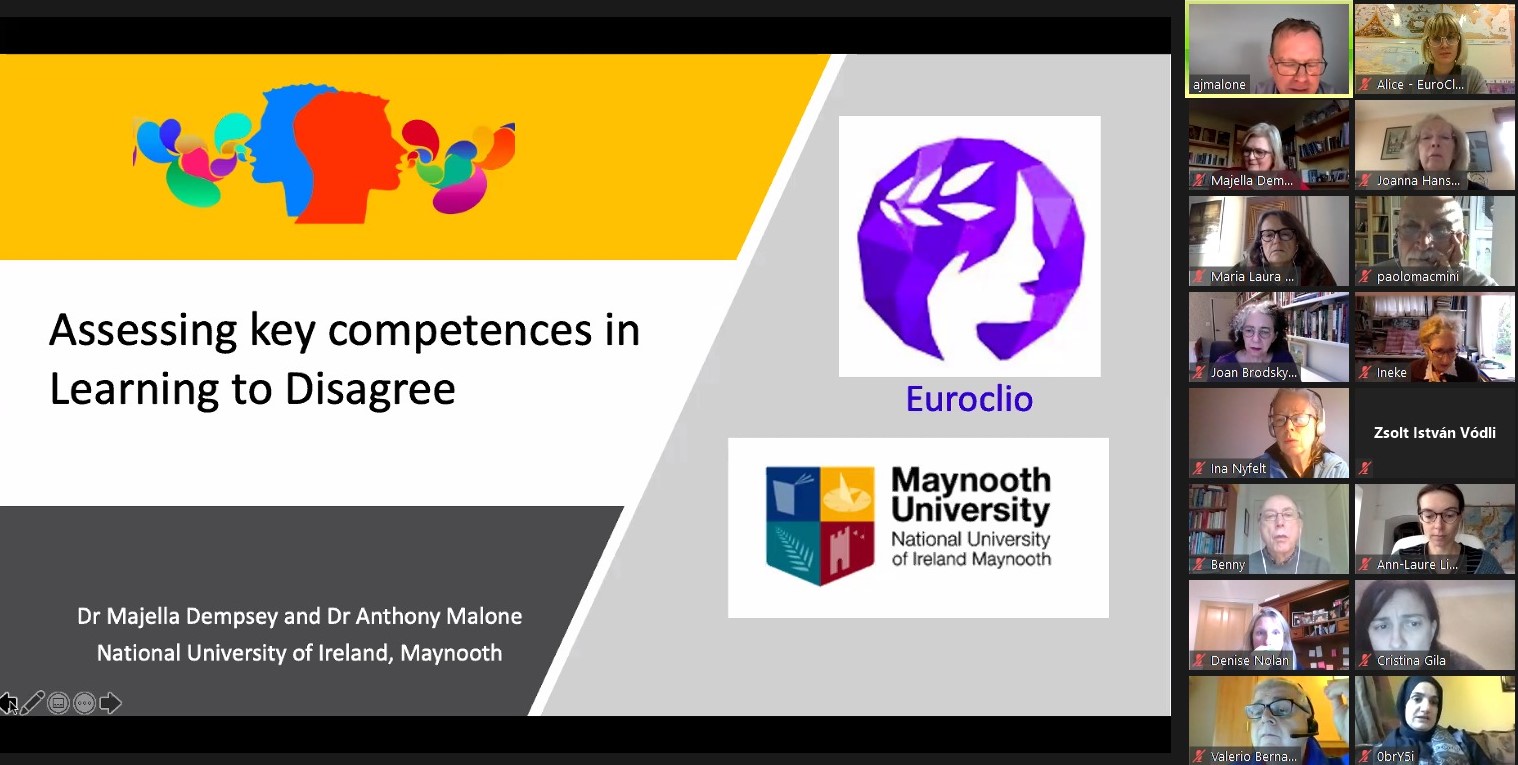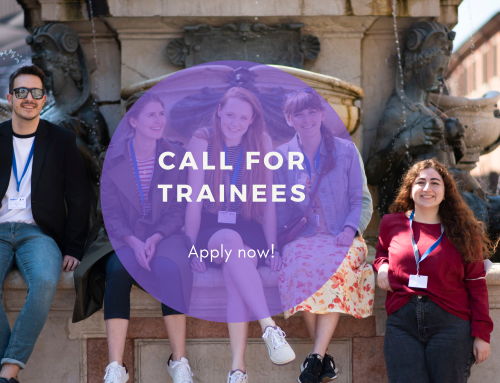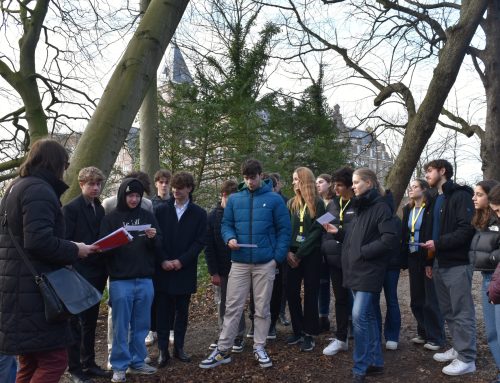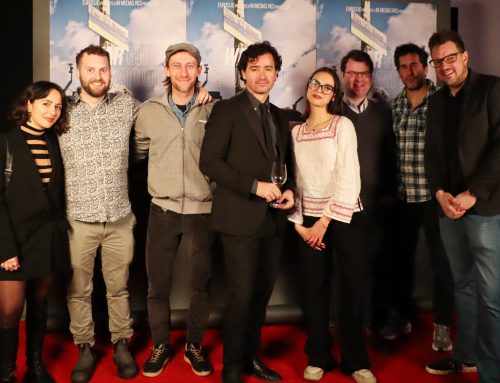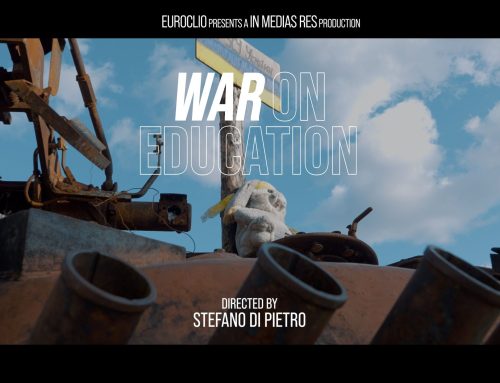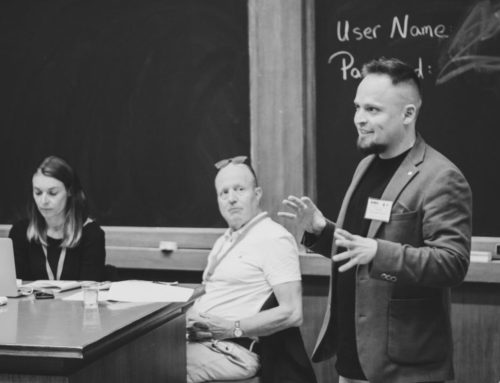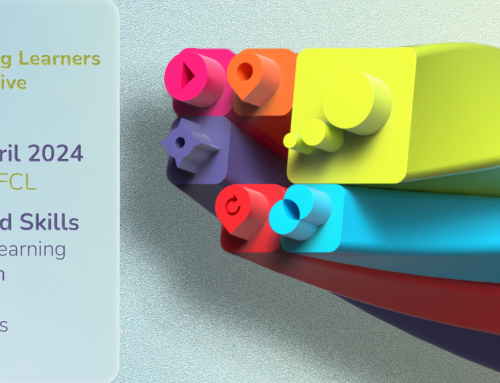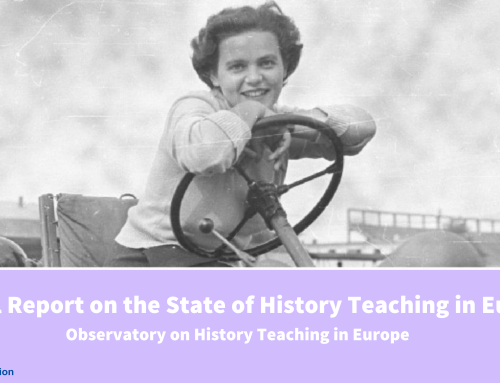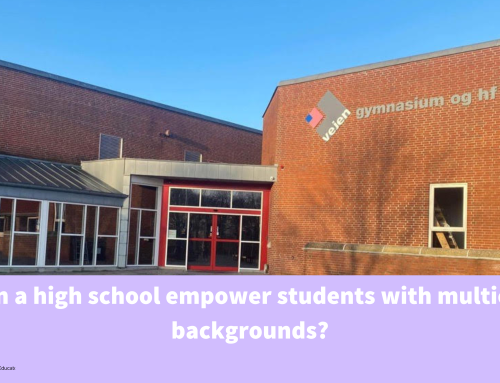On November 21 Majella Dempsey and Anthony Malone, both part of the Learning to Disagree team, gave a plenary workshop on assessment. The workshop began by looking at the “Council of Europe Butterfly”, which helps us answer the question “what does it mean to be competent?”. The Butterfly shows four dimensions of competence: values, attitudes, skills, and knowledge. Within these four dimensions, we can find a variety of opportunities to bring dialogue, debate, discussion, and multiperspectivity in the history classroom.
However, students’ performances are only assessed based on two of the four wings of the butterfly; skills and knowledge. Attitude and values are harder to assess. This is because attitudes are fluid across the classroom, and values might be too hard for students to articulate, especially at a younger age. In particular, empathy is the value that sparks most discussion when it comes to assessment: how do we assess empathy? And Does empathy even have a role in the history classroom or, for that matter, in any classroom? Can we actually teach and assess empathy?
How to go about assessment
Majella and Anthony gave some tangible tips on how to go about assessment. A starting point is of course to look at the curriculum and make sure what you are assessing is in alignment. After looking at the topic at hand, Majella and Anthony advised which methodology is most suited to tackle that topic. Intriguingly, Majella and Anthony advise to reverse-plan lessons; start with assessment and work your way back to the topic!
They also stressed that you should ask yourself what your students will learn: what am I assessing? Their empathy? Their debating skills? Why am I assessing these skills? What method should I use? How can I properly assess and give feedback to my students?
We have all experienced the absolute terror of being evaluated for an entire course in one single test. You might even have experienced that on that one day, you could not perform your best, due to circumstance, and you might remember the disappointment you felt as a student. Therefore, Majella and Anthony introduced learning-oriented assessment. This method doesn’t limit itself to attributing evaluating students’ performance in a specific moment but provides quality feedback that can help bring the student forward. Additionally, not every piece of learning should, or can, be assessed in the same way, so having a variety and drawn out period of assessment, will actually give a better insight into your students’ performance!
A key of formative assessment is that, when it is properly applied, the learner knows from the very beginning what they will learn, how they will be assessed, and what success looks like. Furthermore, it is extremely targeted: it scaffolds learning, or shows students how to proceed forward. Finally, it allows for students to help each other with constructive feedback, and it builds in space for students to reflect on their own work.
Some suggestions from the group
After the presentation the group of participants mulled over the questions teachers ask their students. They reflected on their own mistakes and come to the conclusion they often focussed on content and knowledge, and asked questions that were too academic. They said they also identified a need to ask empathetic questions first, in order to connect with both students and topic. They also underscored that sometimes they would ask too many questions in the same lesson, and subsequently students would lose the focus on what “the question that counts” is, leaving teachers to gaze into the blank stares of their overwhelmed students.
Did you miss this session? Do you want to listen to Anthony and Majella explain more on assessment? Or do you want to learn more about Online Assessment? We recorded a session, hosted by Anthony and Majella, on online assessment. You can find the video here!

